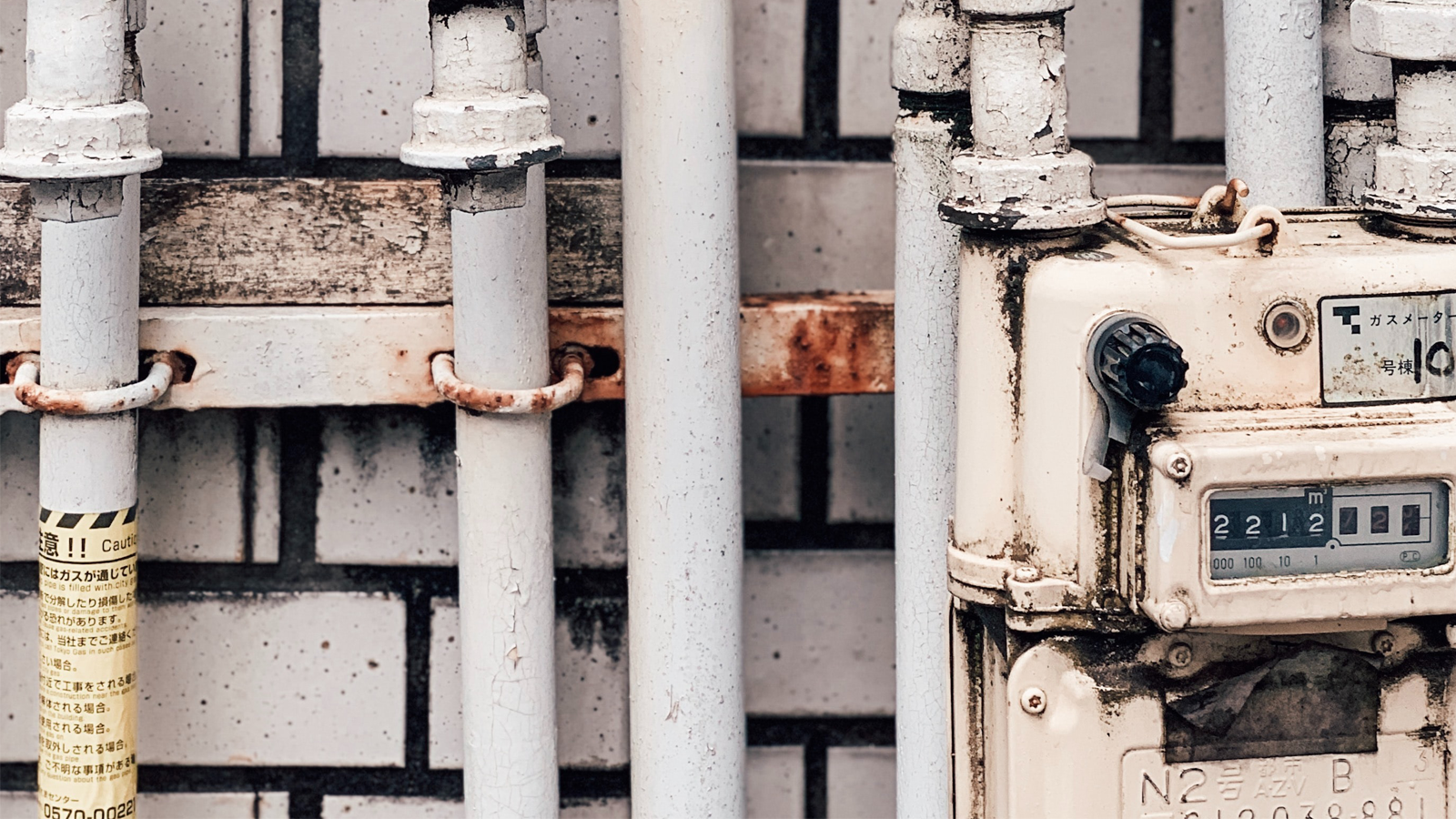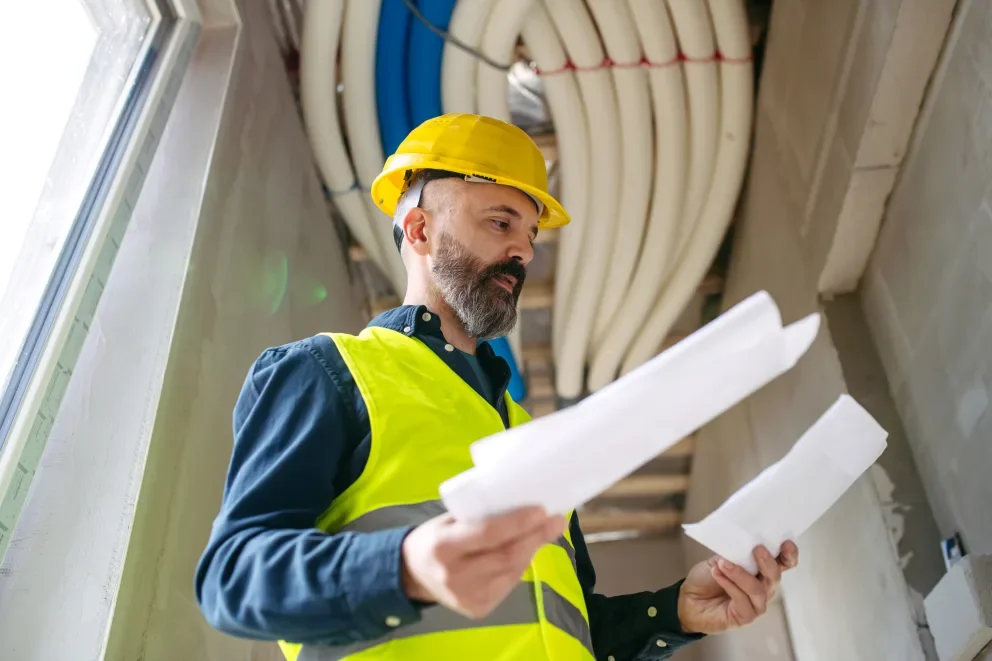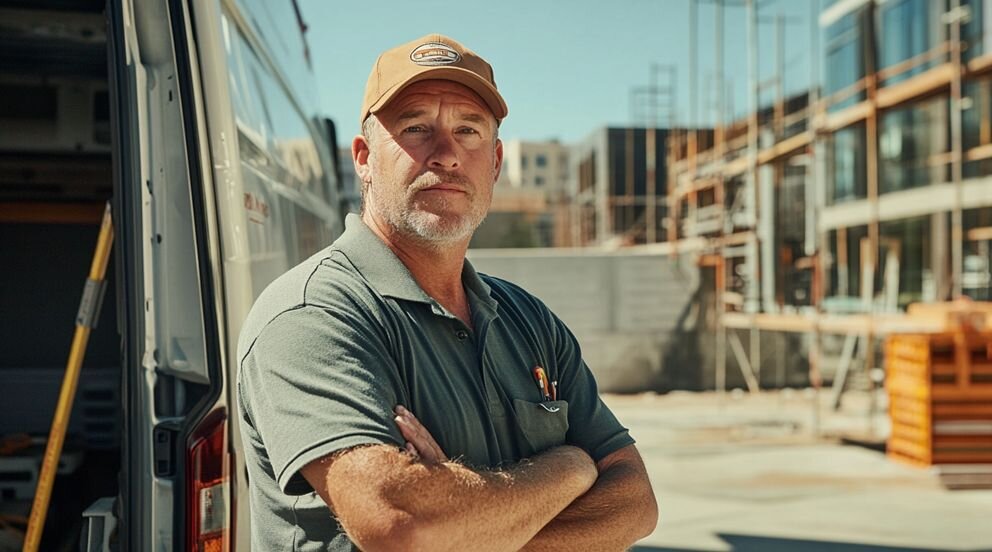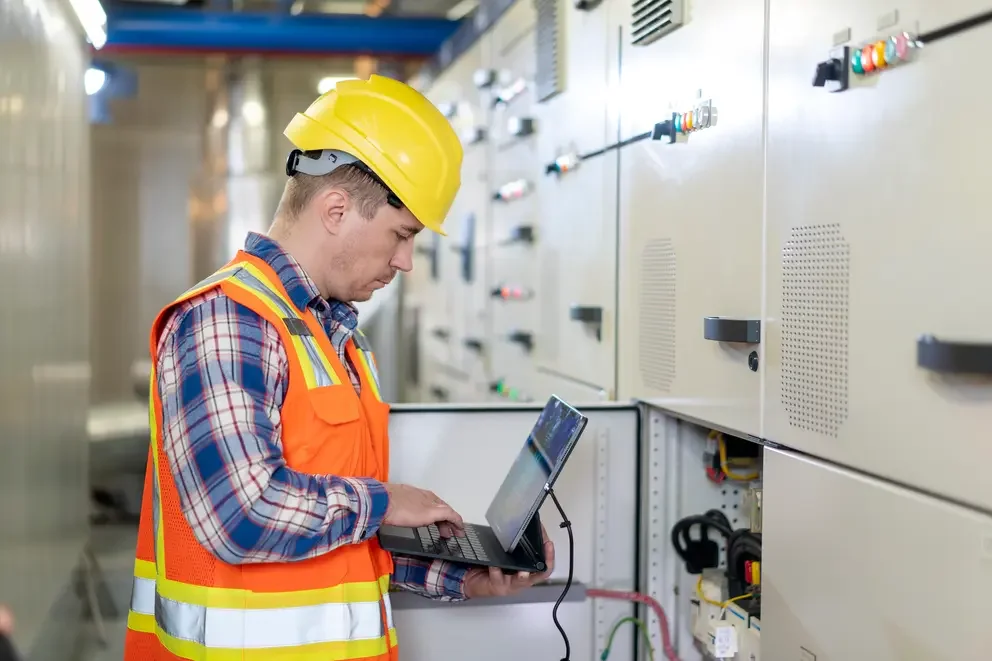The Burj Khalifa is 2,722 feet tall and uses about 249,908 gallons of water daily, distributed among its 163 floors. It required a lot of careful design, planning, and execution to execute the plumbing in this impressive building.
While commercial plumbing doesn’t normally require this much complexity, it gives a good sense of what the potential projects a commercial plumbing contractor could bid and win on.
Commercial plumbing sounds simple. Stereotypically, a commercial plumber deals lots of clogged drains, leaking or burst waterworks, heated water tanks, and maybe a few installations.
The reality is that commercial plumbing requires a large amount of education, training, and expertise because it deals with a very sensitive and necessary daily resource.
Successful commercial plumbers are more than simple maintenance people, only called during emergencies. They are master tradesmen who have to understand and deliver a high level of customer service because it impacts customers immediately.
What it Takes to be a Commercial Plumber
To become a commercial plumber, the first step is typically going through a trade school program, an apprenticeship under a master plumber, or both. The apprenticeship program should last at least 4 years, blending classroom learning with hands-on work.
After completing the apprenticeship, you may have to apply for a journeyman license (depending on the state) and pass the journeyman plumber exam. Once you pass the exam, you can be licensed as a journeyman plumber.
With experience and more coursework, a journeyman can become a master plumber, at which level they’re equipped to run their own contracting business or supervise other plumbers.
Most journeyman and master plumbers handle the bulk of the work involved in commercial plumbing. However, specialized applications, such as industrial-grade plumbing, almost always favor those with a higher level of training, such as special certifications or an undergraduate degree.
Understanding Commercial Plumbing
Commercial plumbers work with water supply and wastewater drainage systems for a variety of businesses, public spaces, building complexes, and high rises. Plumbing is extensive and sophisticated work and that makes commercial plumbing much more demanding than residential plumbing.
Commercial plumbers are also responsible for the regular service maintenance and repair of these systems. The scope of work is almost unlimited, depending on the skill level and training.
You will find them fishing in public bathrooms, wading in flooded basements, fixing broken fixtures in schools, repairing water pumps, and other jobs never seen by a residential customer.
Why Commercial Plumbing is Different
There are some important factors in commercial plumbing. They’re the reason why every plumber can’t manage a simple-sounding job in a high rise building.
1. Multiple Levels
Where multiple story buildings are involved, gravitational forces make bigger impact on water columns in piping, drainage, tanks, and other fixtures. The Burj Khalifa would have water columns weighing over 280 tons if its sections weren’t segmented to reduce strain on the overall system.
2. Scale of the Work
Commercial plumbing is bigger and more complex. Bigger buildings, interconnected water systems, sophisticated equipment used, and bigger potential problems to handle.
Commercial premises can also use industrial-grade equipment such as boilers, fire systems, piping, etc. that require specialized knowledge. When it comes to building quotes for commercial projects, it’s crucial that every task and material is itemized so the projects get approved quickly.
3. Maintenance Standards
Commercial plumbing relies on preventative maintenance to avoid large-scale problems. The systems in a high-end commercial building or a hospital, for example, cannot afford to fail. Plumbing runs 24 hours a day, 7 days a week without a break and must be able to handle constant use.
That’s why contractors servicing buildings can benefit from maintenance contracts. The customer avoid costly emergency repairs and the contractor has consistent work and regular cash flow.
Not to mention, additional pull-through work that can come from being on-site for a regular service maintenance visit.
4. Regulations and Laws
Because of the number of businesses and people who depend on commercial plumbing systems, regulations are much more robust. One of the most prominent regulations surrounds health and safety.
Specifically in restaurants and hospitals, the water supply and drainage systems have to meet various specification to meet health code requirements and avoid potential health violations.
5. Efficiency
Leaky taps and inefficient heaters have a greater impact in industrial settings. They cause a massive waste of energy and resources to maintain and fix, which means that commercial plumbers have to ensure the efficiency of these plumbing systems.
They can also cause large amounts of physical and monetary damage if left unchecked. Think about what would happen if a sink on the 100th floor of the Burj Khalifa sprouted a leak for 4 hours. The water would pool, and cause major damage to the floors below.
6. Work Hours
Since commercial premises are occupied during normal working hours, these contractors often work outside of business hours so that they can work uninterrupted or cause interruptions to normal business.
Commercial Plumbing Specialists
In order to make themselves highly sought after, some commercial plumbers obtain specialized training for specific facets of plumbing. These can include:
- Potable plumbers: systems that involve drinking water
- Pipefitters and steamfitters: work in industrial environments on heating, cooling, and electricity generation
- Pipelayers: laying pipework for storm and waste water drainage
- Sewage and septic systems plumbers
- Fuel gas plumbers
3 Commercial Plumbing Tips
Standards and industry best practices in commercial plumbing vary depending on the application. For example, potable water systems or hot water have specific guidelines on the materials and fixtures that can be used.
However, there are also some best practices that have been accepted by the industry in general.
1. Preventative Maintenance
Preventative maintenance is a great way to increase margins and be proactive about a building’s plumbing systems. Think about the commercial facilities that have been sitting idle all these months thanks to COVID.
Now many contractors are experiencing a post-COVID surge, repairing systems that haven’t gotten the regular maintenance they require.
2. Sending the Right Tech
It’s critical you know which teammate is suited for specific tasks. Dispatch software that allows you to send out techs by skills is your best option. Look for an operations platform that leverages your team’s skillsets and availability to identify the best tech for the job, reducing call-backs and improving efficiency.
3. Regular, Scheduled Tests, and Checks
Testing and checking of all plumbing systems must be completed according to regulations standards. This is especially important for concealed piping and fixtures. The consequences of failure on these systems could be catastrophic and expensive.
Tests, like hydraulic tests and toxicity tests, should be conducted regularly . When issues are detected, corrective measures need to be taken immediately.
Commercial plumbers have a lot to handle in the normal course of their job without having to be weighed down by the day-to-day running of a plumbing contractor business. BuildOps offers to handle all your office tasks such as organization, dispatch, invoicing, and more.
See how our platform makes field service management effortless.



